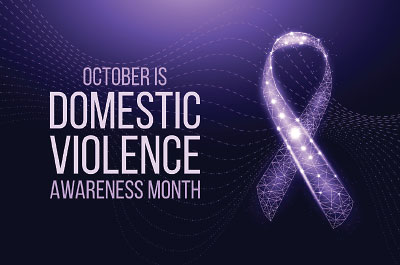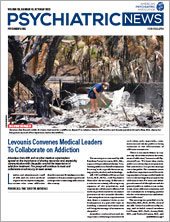October is National Domestic Violence Awareness Month, making this a good time for psychiatrists to remember their role in advocating for interpersonal violence (IPV) prevention. IPV, which includes domestic and sexual violence, remains a significant public health concern affecting millions of individuals across the United States. Psychiatrists can help curb this epidemic by promoting survivor-centered approaches, rather than mandated reporting, and by connecting survivors of IPV with community-based resources.
Survivor-Centered/Trauma-Informed Approach
Psychiatrists can be instrumental in promoting a survivor-centered and trauma-informed approach to IPV prevention. This approach recognizes the unique needs and experiences of survivors, acknowledging the impact of trauma on their mental health. Psychiatrists can foster safer and more supportive environments by providing accurate information and informed consent about limits of confidentiality. A key foundation of trauma-informed care is rebuilding agency after traumatic loss. This can be done by respecting the autonomy of survivors to make decisions about their care, including whether to involve law enforcement.
Impact of Mandatory Reporting on Survivors
Research has shown that mandatory reporting laws can be harmful to survivors and deter them from seeking vital medical services. In a survey of survivors who had experienced mandated reporting, 83% stated mandatory reporting made the situation much worse, somewhat worse, or did nothing to improve their safety. Physicians are faced with legal and ethical challenges when upholding a survivor’s autonomy conflicts with complying with mandatory reporting laws despite the survivor’s objection.
While psychiatrists may be exempt from mandated reporting in certain cases, they have a duty to advocate for the well-being and autonomy of their patients as they seek medical care. In line with major health care organizations such as the AMA, World Health Organization, American College of Obstetricians and Gynecologists, and others, psychiatrists should advocate for policies that prioritize their patients’ autonomy.
Understanding Barriers and Empowering Survivors
Psychiatrists must remain sensitive to the barriers that survivors face when seeking help for IPV. Studies indicate that fear of law enforcement involvement is a major deterrent for seeking treatment and sharing important information. This is particularly true for groups at heightened risk from structural violence, including women, minoritized individuals, immigrants, and others. Specific examples include immigrant survivors of IPV who have been deported or detained after reporting abuse or seeking protective orders. Additionally, Black women are at higher risk of worsened maternal health outcomes when law enforcement becomes involved. These studies and examples demonstrate that mandatory reporting to law enforcement is not benign as is often depicted.
California AB 1028: A Step Toward Empowerment
To support trauma-informed care, California state legislators have introduced Assembly Bill 1028, which is supported by many domestic and sexual violence advocacy organizations and the California Medical Association. AB 1028 aims to uphold survivor autonomy, health, and safety by removing the state mandatory reporting requirement for health care workers reporting physical injuries caused by IPV, except in cases involving injury from firearms. Additionally, the bill requires referrals or “warm handoffs” to community-based IPV prevention and advocacy services for all IPV survivors. AB 1028 empowers patients by allowing them the autonomy to decide when to involve law enforcement.
In conclusion, psychiatrists have multiple ways to support patients who have experienced IPV. By implementing a trauma-informed approach, psychiatrists can help restore agency for those who have experienced traumatic losses of autonomy. Advocating for policies that respect the autonomy of survivors is another way that psychiatrists can help ensure that those affected by IPV receive the support they need without fear of unintended consequences. Finally, connections to survivor advocacy organizations may prove useful. A valuable resource is the National DV Hotline: 1-800-799-SAFE. ■


